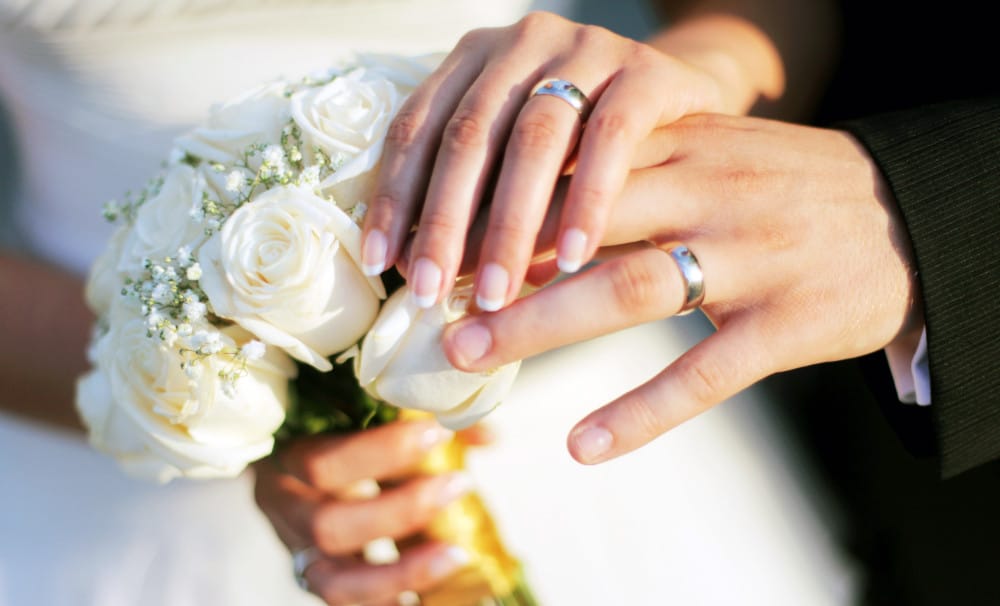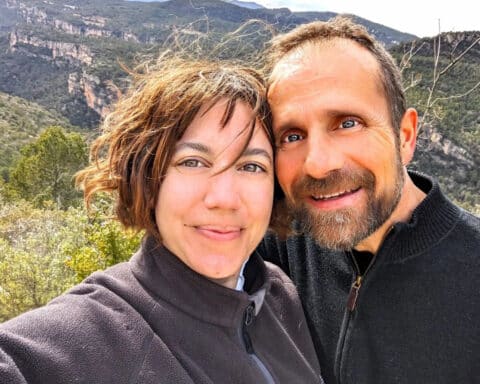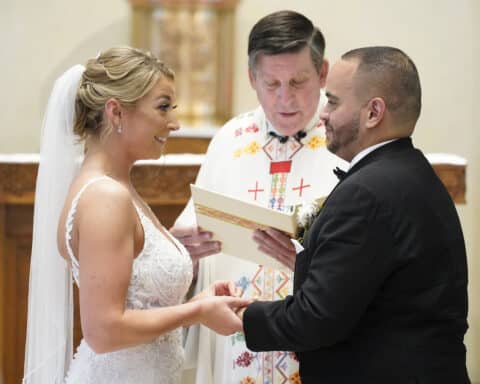
— Name withheld, Texas
Answer: Your decision is commendable and appropriate. Since your sister-in-law has MS, it also makes sense that your wife may need to assist her. This is why the Church does not have an absolute norm when it comes to these awkward marriage situations.
The general norm is that Catholics should not attend the weddings of Catholics held outside of the Church or weddings that are invalid due to other factors, such as a same-sex “wedding” or a “wedding” where one or both of the spouses has been married before and do not have a decree of nullity. The reason for this general norm is that to attend a wedding ceremony is to indicate one is happy and is celebrating the union that is to take place. But in some circumstances, Catholics cannot celebrate what is being done. Hence, they should not attend. This may sow confusion or scandal by leading others to think the wedding is fine by Catholic standards when it is not.
There are, however, some situations where refusing to attend a wedding may so poison family relationships that a prudential judgment can be made to attend. Since the overall goal is to witness to the Catholic faith and to seek conversion and a return to the sacraments for fallen-away Catholics, one may prudently determine that a better course is to attend but resolve to seek to explain, at a later time, the need to validate the marriage to the couple and others. So, while the general norm is not to attend for the reasons stated, it is not an absolute norm, permitting Catholics to ponder what is best and most likely to succeed in winning back the fallen-away Catholics. In your case, there are other circumstances. Your sister-in-law’s condition requires help from your wife. Hence, while you properly conclude that you should not attend, your wife’s presence may be necessary in terms of charity and medical need. Therefore, I think you have reasoned properly in the matter.
Judgment and natural disasters
Question: Abraham, as we read recently in Mass, is persistent in asking God to save Sodom even if there were only 10 good people in it. Since Sodom was destroyed, it indicates that less than 10 good people were living there. What about areas that get destroyed by earthquakes, floods, hurricanes, tornadoes, etc.? They often predominantly occur in poor countries or areas. Does God allow the poorest of the poor to sometimes be devastated? I have difficulty seeing a just and merciful God at those times.
— Jeannine Aucoin, Concord, New Hampshire
Answer: The story of Abram’s “haggling” with God over a few righteous being saved instead of the many who are guilty is a classic image for prayer and the need to accept that very few of us are righteous in God’s eyes, and that we need his grace and mercy above all things. It is true that Lot’s family was rescued, but no one else. We surely need to be careful when assigning wickedness to some but not others. It is common that disasters afflict the righteous and the wicked, the rich and the poor. God’s providence remains mysterious and sovereign.
Msgr. Charles Pope is the pastor of Holy Comforter-St. Cyprian in Washington, D.C., and writes for the Archdiocese of Washington, D.C. at blog.adw.org. Send questions to msgrpope@osv.com.





